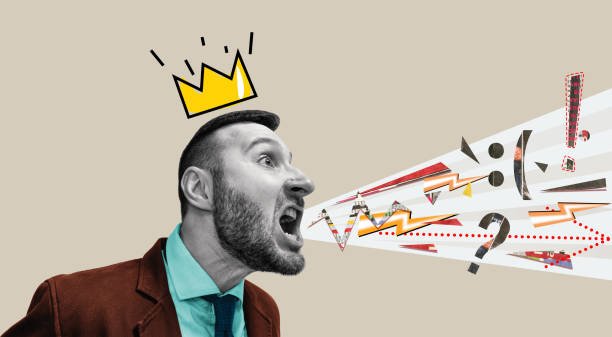Introduction
Eugen pronunciationEver stumbled upon a name that made you pause mid-sentence because you had absolutely no clue how to say it? Yep, we’ve all been there. And one name that really takes the cake is Eugen. Depending on who you ask, you’ll hear a dozen variations—some soft, some sharp, and some that sound like completely different names altogether.
- Introduction
- The Origin Story of Eugen
- So… How Do You Pronounce Eugen?
- Why Names Like Eugen Confuse Us
- The Global Faces of Eugen
- Tips for Mastering Eugen Pronunciation
- Eugen vs. Eugene: Are They the Same?
- Cultural Charm of Eugen
- The Psychology of Pronunciation Struggles
- Funny Mispronunciations of Eugen
- The Future of Eugen Pronunciation
- Conclusion
- FAQs About Eugen Pronunciation
In this deep dive, we’ll explore the intriguing twists and turns of Eugen pronunciation. From its roots in European history to the way modern speakers juggle its syllables, you’ll see why this name is a linguistic chameleon. So, buckle up—because the journey of saying “Eugen” is just as fun as it is enlightening!
The Origin Story of Eugen
Before we can figure out how to say it, let’s roll back the clock. The name Eugen isn’t new. In fact, it has ancient roots:
-
Greek beginnings: Derived from Eugenios, meaning “well-born” or “noble.”
-
Latin transition: Adopted into Latin as Eugenius.
-
European adoption: Spread through German, French, and Slavic cultures, picking up unique twists in pronunciation along the way.
With such a diverse journey, it’s no wonder Eugen pronunciation isn’t straightforward.
So… How Do You Pronounce Eugen?
Here’s where it gets interesting. There’s no single “correct” way—it depends on geography, language, and even personal preference. Let’s break it down.
German Pronunciation
-
Said as “OY-gen” (rhymes with “boy-gen”).
-
The “Eu” is pronounced like the “oy” in “boy.”
-
Popular in Austria and Germany.
English Pronunciation
-
Often Anglicized to “YOU-jen”, sounding similar to “Eugene.”
-
Simpler, but it loses some of the original flair.
Eastern European Pronunciation
-
In Romanian or Slavic tongues, you might hear “EH-oo-jen” or “EH-yen.”
-
Softer vowels, more melodic.
French Pronunciation
-
Styled as “Eh-ZHEN”, with that iconic French “zh” sound.
-
Think of it like saying “Jean” with flair.
So, when someone asks: “What’s the right Eugen pronunciation?”—the answer is: It depends on where you are!
Why Names Like Eugen Confuse Us
Ever noticed that names tend to trip people up more than regular words? That’s because names carry identity, culture, and sometimes even pride. With Eugen, confusion arises because:
-
Different countries kept their versions of the name.
-
The spelling looks deceiving—especially the “Eu.”
-
English speakers instinctively try to fit it into their own sound patterns.
In short, it’s a perfect storm for pronunciation mishaps!
The Global Faces of Eugen
Let’s meet some famous folks who carried the name and notice how their pronunciation differed.
Prince Eugene of Savoy
-
One of Europe’s greatest military commanders.
-
In German, his name was “OY-gen.”
Eugen Sandow
-
Known as the father of modern bodybuilding.
-
Born in Germany, his name carried the German pronunciation.
Eugène Delacroix
-
A French painter, famous for Romantic art.
-
Here, it transforms to “Eh-ZHEN.”
Eugen Ionescu (Eugène Ionesco)
-
A Romanian-French playwright.
-
His name blended both French and Romanian pronunciations.
These examples show just how flexible the name truly is.
Tips for Mastering Eugen Pronunciation
Alright, so how do you avoid the awkward “umm… how do you say your name again?” moment? Here are some quick hacks:
-
Ask the person directly – Nothing beats hearing it from the source.
-
Remember language rules – If the person’s German, lean towards “OY-gen.” If French, try “Eh-ZHEN.”
-
Listen and repeat – YouTube interviews, podcasts, and language guides are goldmines.
-
Don’t overthink it – Most people appreciate the effort more than the perfection.
Eugen vs. Eugene: Are They the Same?
Good question! On paper, they look like cousins. But here’s the lowdown:
-
Eugen = European variant with multiple cultural pronunciations.
-
Eugene = The English version, typically pronounced “YOU-jeen.”
So while they share roots, they’ve taken different journeys through history.Why Does Pronunciation Even Matter?
You might wonder: does it really matter if you say “OY-gen” instead of “YOU-jen”? Honestly, yes. Names are deeply personal. Getting them right shows respect. Mispronouncing someone’s name repeatedly can feel dismissive, even if unintentional.
Think about it: if your name was constantly twisted into something else, wouldn’t it feel odd? That’s why paying attention to Eugen pronunciation (or any tricky name) goes a long way.
Cultural Charm of Eugen
One of the most fascinating things about this name is how it adapts while keeping its noble meaning intact. Whether in:
-
Germanic lands (as “OY-gen”),
-
French salons (as “Eh-ZHEN”), or
-
Anglo-American settings (as “YOU-jen”),
…it still conveys sophistication. The cultural flexibility of Eugen adds to its charm.
The Psychology of Pronunciation Struggles
Here’s a quirky thought: why do some names throw us off more than others? Linguists suggest it’s because:
-
Our brains like predictability—“Eu” isn’t predictable in English.
-
Exposure matters—the more often you hear it, the easier it sticks.
-
Confidence plays a role—second-guessing makes you stumble.
So, if you’re tripping over Eugen pronunciation, you’re not alone—it’s science!
Funny Mispronunciations of Eugen
Let’s be real—mispronunciations can sometimes be hilarious. Some common “oops” versions include:
-
“OOH-gen” (sounds like a video game villain).
-
“EH-goon” (accidentally turns noble into spooky).
-
“YOU-gain” (like a fitness slogan).
While funny, these blunders highlight how tricky the name can be.
The Future of Eugen Pronunciation
With globalization and digital media, names cross borders faster than ever. Chances are, the English-friendly “YOU-jen” will keep gaining traction internationally. But at the same time, cultural pride will preserve the original forms like “OY-gen” and “Eh-ZHEN.”
In the end, the name’s adaptability is what keeps it alive and relevant.
Conclusion
The name Eugen is more than just a string of letters—it’s a cultural passport that sounds different depending on where you stamp it. From “OY-gen” in Germany to “Eh-ZHEN” in France and “YOU-jen” in English, Eugen pronunciation is a fascinating study in how language shapes identity.
So, the next time you meet an Eugen, don’t panic. Just ask, listen carefully, and give it your best shot. After all, names are stories—and saying them right means you’re honoring the person behind the sound.
FAQs About Eugen Pronunciation
Is Eugen the same as Eugene?
Not exactly. They share the same roots, but “Eugen” is more common in European languages, while “Eugene” is the English version.
What’s the most common Eugen pronunciation?
In German-speaking countries, it’s “OY-gen.” In English-speaking ones, people often say “YOU-jen.”
Why is the “Eu” in Eugen so confusing?
Because different languages treat “Eu” differently—German makes it “oy,” while English leans toward “you.”
Is it rude to mispronounce Eugen?
Not if you’re genuinely trying! Most people appreciate the effort. But if you keep mispronouncing without correction, it can feel careless.
Which pronunciation should I use?
Go with the speaker’s cultural background. If unsure, politely ask—it’s the simplest and most respectful way.








